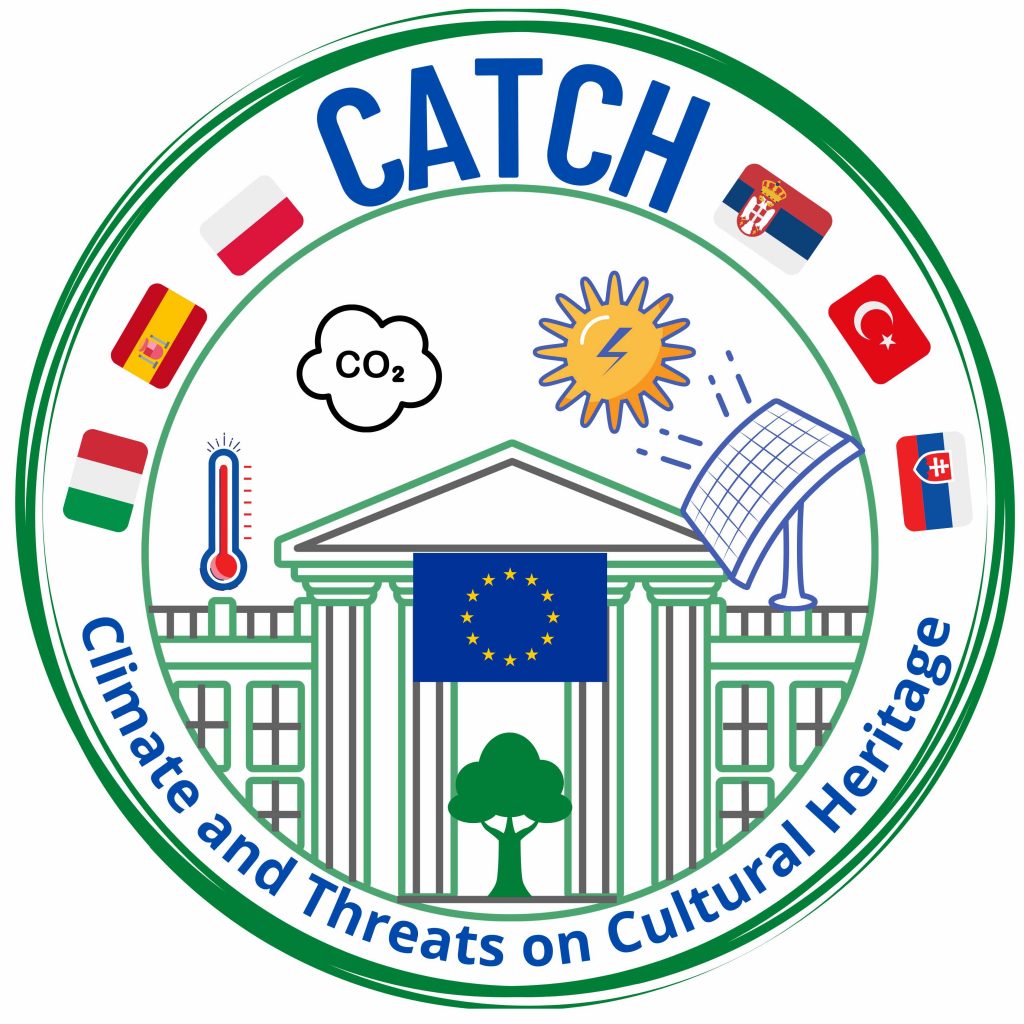PROJECT
The international project Climate and Threats on Cultural Heritage (Partnership Identifier: 2020-1-ES01-KA229-082560) is funded by the European Union Erasmus+ Program.
It is Key Action: KA2 – Cooperation for innovation and the exchange of good practices, Action Type: KA229 – School Exchange Partnerships.
The project aims at preserving our cultural heritage by analysing the impact of climate change and other threats and carrying out cooperative ecological activities to try and diminish negative effects on our precious historical sites.
The EU is committed to take action to limit global warming to well below 2°C above pre-industrial levels, in line with the 2015 Paris Agreement. In November 2018, the Commission adopted the 'clean planet for all’ strategy, aiming for a prosperous, modern, competitive and climate-neutral economy by 2050. Education is an essential element of the global response to climate change.
Public opinion, especially of young people, is acutely aware of global climate change issues. Despite this, there is less action to reduce carbon footprint and thus protect cultural heritage area.
The students need education on the impact of climate change on cultural heritage and on the importance of cultural heritage as a climate change indicator. To achieve these, the general aim of the project is to build student awareness of the cultural heritage of their city, the preservation of cultural heritage and a critical awareness of climate change problems related.
The main objective of our project is to learn about the various ways of preserving our cultural heritage by analysing the impact of climate change and other threats and carrying out cooperative ecological activities to try to reduce the negative impact on our valuable historical sites.
It is a great achievement that our students became better acquainted with other cultures and the influence of the cultures of their countries on the shape of the European Union as a whole. They open up to other cultures, traditions and people. The project greatly increases the knowledge of the participants and the school community about ecology, other cultures, languages, cultural heritage and generally increases acceptance and tolerance towards others. It is helping us to develop open-minded students who can accept and create values and tolerate differences.
Within the LTTs, students work as one team – contributing to the completion of the tasks. The students willingly participate in all activities. Their progress in developing English communication skills and greater cultural awareness is very valuable and will certainly have a lasting impact on the students – they improve their fluency in English and will do better in the next levels of education.
The project coordinators from each school would like to thank all the people involved in the project for their cooperation.
We would especially like to thank:
- the people from our National Agencies for their support and inspiration
- the Local School Governing bodies for their assistance
- the students who participated in the project for their commitment
- the students’ parents who were always ready to help
- our fellow teachers for their collaboration and backing
- and last, but not least, our head-teachers for their encouragement, commitment, constant support and for believing in the success of the project.
Without you this project wouldn’t have worked.
The website and the project have been funded within the framework of the European Union Erasmus+ programme. This website reflects the views only of the partner schools, and the European Commission and the National Agencies of the partner countries cannot be held responsible for any use which may be made of the information contained therein.
Last Update: 04/10/2023


